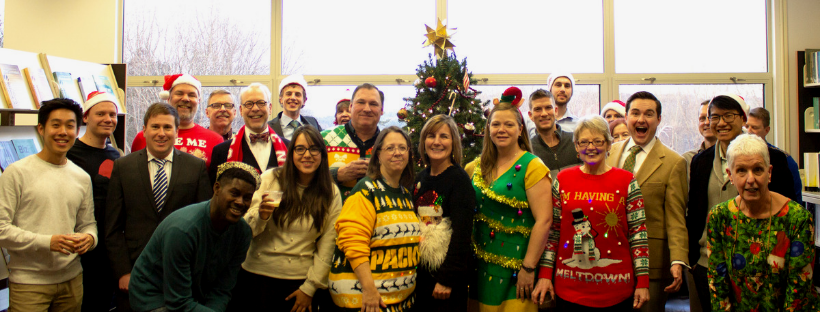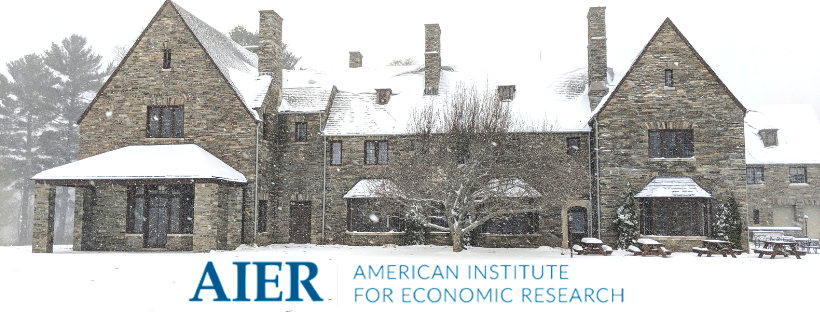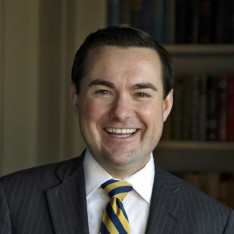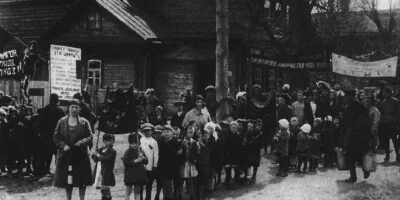AIER, This Year and Next
All of us felt it on this beautiful day. The right spirit was in the air, among two dozen staff members and visitors gathered in the library, all of us looking out the spacious windows over the wintery scene on the property of the American Institute for Economic Research in Great Barrington, Massachusetts. There was a sense of both joy and awe in the room, with enough personal warmth to counter the cold outdoors.
It was the tree trimming party at our offices, an annual event that stretches far back in time, with so many generations of idealists, all the way to 1946 when our founder Edward C. Harwood bought the estate from Mr. and Mrs. Prentice L. Coonley. They had purchased the home in 1926 from Dr. and Mrs. Frederick Stark Pearson. Pearson, a world famous engineer, bought the Folly Farm in the Berkshires in 1906 and turned it into a famous home for music and dining. The Pearsons died tragically on the Lusitania in 1915. The home was later replaced with the current stone structure, and the offices in which we decorated the tree were built in the 1960s to deal with the expanded work of AIER.
The place is filled with riveting, dramatic, inspiring history, and all of us feel this every day, especially during the holidays. Since E.C. Harwood bought the property, so many remarkable people in the past have undertaken this ritual, surrounded by family and colleagues in the great mission of bringing integrity and truth to the topic of economics, which is really about finding a path to a better life. We were surrounded by the creative and courageous spirit of all those who have gone before and have bequeathed to this generation the responsibility of continuing the great work.
Back in 1933, Harwood saw the need for an institution that would be independent of government and official academia so that intellectual integrity could be safe from the wiles of politics.
In the world of 2019, we face the same need, as many great thinkers are facing political discrimination on the job market or at academic institutions where these scholars work. Such political exclusionism is real and growing. Fortunately, we have a way to work around these problems through our own venues that are hugely and widely respected throughout the world.
The impeccable reputation of AIER is our most priceless asset and it is one we guard with all our efforts. We dare not turn our back on the history that has made this possible and the minds that built this great institution. We should instead let that historical and intellectual capital guide us in the days and years ahead, so that we can leave behind us this great gift for the next generation.
The happiness was everywhere evident in the room this day, because we could begin to look back on an extraordinary year of revival. The term renaissance is truly appropriate. The fruits of this are everywhere present. Scholars and researchers are filling up offices. We have new technical workers. New departments are opening to perform essential but previously neglected tasks. We have many remote employees too, and we all come together in our weekly staff meetings through video chat. All day every day, all of us are collaborating thanks to high-end technologies that make this style of work possible.
We’ve also made possible meetings around the country and the world, as many as 150 this year. These are occasions for businesspeople and intellectuals to come together to discuss ideas. We have a new publishing program and have already produced three classic books, with dozens more on the way. We’ve received accolades from the press (both print and TV) for our articles and studies on academic topics. The scholarly press is filling up with contributions from our monetary economists. Our digital properties have all come to life with nonstop content that I believe is some of the best produced anywhere on the planet earth.
So, yes, there is plenty of room for pride at what we’ve accomplished. The tree trimming party occurred on the same day we celebrated our in-house researcher Phil Magness getting quoted by the Wall Street Journal. A couple weeks before our in-house researcher Max Gulker also had a big spread. We are now a source of news for America’s biggest financial paper! Translations are pouring in. Book sales are up. Interviews with our writers are now a daily occurrence.
But what really excites us today – and I’m speaking here not only of the staff but also of the thousands of stakeholders of this illustrious institution – is the promise of the future. Think of the symbolism of the season: since the ancient world, humankind has marked this season for being the beginning of the dawn when the days grow longer and the nights shorten. It is the beginning of a new dawn for this institution, too: a new birth for the greatest ideas ever conceived by the human mind.
What is at stake? In a word, it is freedom itself. We know that freedom is impossible without private property, the opportunity to trade, enterprise as a human right, the creativity of the marketplace, the ability to shape our own destiny through the choices we make. It is this precious freedom which is the source of our prosperity and peace, which are in turn the foundations of the good life. No sacrifice is too great in order to realize this ideal.
Daily I’m moved by new and old discoveries associated with our history. We have employees at AIER with long memories who remember both good times and bad, and it thrills me to hear that they too share my optimism. Also our new staffers are filled with hope about the opportunities their jobs give them. Daily, too, I talk to legacy and new benefactors, who love the work that is taking place.
As we approach the end of the year, I’m struck by how the atmosphere at AIER makes for a welcome contrast with the civic culture of division and anger that dominates politics and mainstream news. We are focused on the long term, and on truth and integrity as the desiderata of intellectual value. This is what has made AIER great in the past – fully 85 years of confidence in the power of ideas – and it is what will carry us into the future.
We would welcome you as a supporter in the great task ahead.
All of us at AIER wish you happy holidays and a blessed new year.













